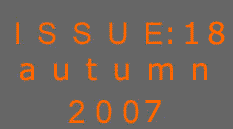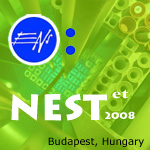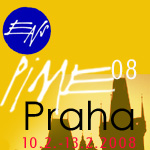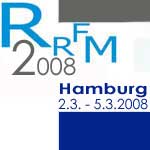ENS NEWS, N° 18:
The nuclear debate: from taboo to technology
platform
Not so long ago sensible discussion about nuclear
energy was often marginalised, especially in anti-nuclear countries.
In fact it was, and to some extent still remains, a no-go issue;
a taboo subject banished from the mainstream of conversation.
The tragic events of Chernobyl stirred up a whirlpool of understandably
emotional reactions and created in the minds of many a view of
nuclear energy that was largely coloured by irrational fears,
inherited misconceptions and doomsday scenarios. The opponents
of nuclear energy, skilled at exploiting the effects of emotive
language and imagery, still encourage this mindset in order to
keep nuclear energy off the agenda. They espouse a cause based
more upon ideology than upon rational argument or fact. And yet,
slowly but surely, as the scars but not the lessons of Chernobyl
begin to fade, and as the strong security of supply and environmental
credentials of nuclear energy have come to the fore, the whole
nuclear energy question is once again a legitimate and legitimised
subject of debate. Even the anti-nuclear brigade now openly refer
to the “dangers of the nuclear renaissance” – recognition
in itself that nuclear energy is back and no longer a taboo subject
to be dismissed out of hand.
The recent nuclear revival in Europe and beyond
has been fuelled by a new spirit of pragmatism; a revitalising
dose of good old-fashioned common sense. Governments, economists
and environmentalists, with admittedly varying degrees of enthusiasm,
have come to the inevitable conclusion that there is no way today’s
security of supply and climate change conundrum can be solved
without nuclear energy as a major part of the equation. Accordingly,
public perceptions of nuclear energy have subtly changed as reason,
greater environmental consciousness and practical expediency
have gradually gained the upper hand over entrenched thinking
and preconceived ideas.
Meanwhile, policy-makers in Brussels have launched
a series of initiatives, like the High-Level Group on Safety
and Radioactive Waste and the European Nuclear Energy Forum (ENEF)
that have effectively institutionalised nuclear energy’s
return to the top of the EU’s energy agenda. At this rate
it’s those that want to maintain nuclear energy’s
taboo status that might soon appear marginalised and blind to
reality.
But what does this mean for the scientific and
research community? How much of the new political will and energy
invested in the nuclear revival will filter through to those
leading the research drive that is so essential for maintaining
it? How, if at all, will the daily life of the average nuclear
researcher be affected? Well, a new initiative by the European
Commission could prove to be significant. The launching of the
Sustainable Nuclear Energy Technology Platform (SNETP) on 21
September should help give fresh focus and impetus to the European
nuclear research effort. The overriding aims of the SNETP are
to facilitate closer integration between researchers and industry
and to enable the definition and implementation of a Strategic
Research Agenda (SRA) and its corresponding Deployment Strategy
(DS). With its fundamental emphasis on greater specialisation
in high-tech areas, it should also help to maintain Europe’s
R&D leadership in the nuclear research sector and help deliver
nuclear energy’s contribution to the Strategic Energy Technology
Plan (SETP), which aims to develop research into all low-carbon
technologies in the EU.
A strategic document entitled SNETP: A Vision
Report was published to coincide with the launch. This report,
which was compiled with the support of industry, research institutes
and the Euratom Scientific and Technical Committee, underlines
the special contribution made by nuclear energy to ensuring security
of energy supply, promoting competitiveness and fighting climate
change. It also provides a roadmap for the creation of the Strategic
Research Agenda (SRA). The SRA roadmap highlights the start-up
by 2020 of a new breed of fast reactors (Generation IV), advanced
recycling processes and the production of alternative fuels,
like hydrogen. The SRA and the DS will “ensure that nuclear
fission energy is generated in a manner that meets the criteria
for sustainable development in strict compliance with safety
requirements.” The Vision Report also stresses the need
for increased resources for education and training in nuclear
engineering.
At last, nuclear energy research can compete
on a level playing field with other major energy sources because
now it too has its own EC-supported technology platform. Like
all technology platforms, the SNETP will focus on increased investment
in research into high-tech areas, enhance coordination of pan-European
research efforts and promote increased technology take-up by
industry. To make this happen it will promote a shared stakeholder
vision, mobilise public and private funds, impact positively
upon a wide range of policies and avoid continued fragmentation
of research efforts.
The SNETP is ultimate recognition by the European
institutions that nuclear is a major part of Europe’s energy
future. Of course, it’s early days yet and only time will
tell whether the SNETP will deliver on its commitments. But at
least it’s a start. Without the political will to make
this new research commitment work the fine words will remain
just that – words. ENS NEWS looks forward to hearing from
its readers involved in the front line of research what they
think of this EU initiative and how they think it might affect
their lives.
ENS NEWS N° 18
kicks off with the traditional Word from the President; on this
occasion Frank Deconinck’s contribution
comes in the form of the integral text of the welcoming address
that he and Marcel Maris delivered at the ENC 2007 conference,
in Brussels, in September. In his usual thought-provoking manner
Andrew Teller then focuses on how differing interpretations and
expressions of logic can help explain the inconclusive state
of the debate between the supporters and opponents of nuclear
energy.
The Events section of ENS NEWS N° 18 first
focuses on the objectives, programmes and conclusions of ENC
2007, before turning to the future by providing basic information
and calls for contributions for the following ENS flagship conferences:
PIME 2008 (Prague, 10-13 February), RRFM (Hamburg, 2-5 March)
and NESTet 2008 (Budapest, 4-9 May).
In the Member Societies and Corporate Members
section there are a number of reports that combine technical
data and analysis with information about significant political
developments affecting nuclear researchers. First up is a detailed
analysis of a new concept in high-pressure boiling water reactor
(HP-BWR) design and how it compares to traditional BWRs. Our
colleagues from the Technical University in Vienna then provide
ENS NEWS with the abstract that they presented at the recent
Nuclear Energy for New Europe Conference, which took place in
Slovenia, in September. The subject under the spotlight is Can
Austria Survive without Nuclear Energy? The next contribution
is a report by the Editor on the recent signing by EC Science
and Research Commissioner, Janez Potocnik, and the CEA in France,
of a European Charter for Researchers and a Code of Conduct for
the Recruitment of Researchers. This Charter is a significant
political development that should have positive repercussions
in other countries because it underlines the attractiveness of
the EU as a breeding ground for research excellence and stresses
how a career in research is an interesting and fulfilling career
for talented young scientists; the scientists whose skills will
be needed to sustain the nuclear revival and signpost the future
of nuclear research in general.
The Croatian Nuclear Society (CNS) then provides
readers with information about the 7th International
Conference of the CNS, which takes place in Dubrovnik, from 22-25
May 2008.
The title of the conference is The Nuclear Option in Countries
with Small and Medium-sized Electricity Grids.
In this edition of ENS NEWS we have a number
of reports from the Young Generation network. Two interesting
conference reports put the spotlight on a subject of great importance
to the nuclear science community – and especially young
scientists – education and training. This is a subject
that ENS NEWS has banged on about before and it remains central
to defining the future of nuclear science and research for years
to come. The first conference is the ICEM conference that took
place in Bruges, Belgium, in September 2008 and the other one
is the BNES/INucE congress, which took place in Manchester, UK,
in June 2008.
The European Institutions section provides a
detailed report on the recent launching of the Sustainable Nuclear
Energy Technology Platform (SNETP). This landmark EU initiative
could have a fundamental affect upon the working environment
and future direction of research into all things nuclear. It
represents a significant political step and the nuclear community
waits with interest how things will unfold. Watch this space!
True to tradition, ENS NEWS N° 18 wraps up proceedings a
couple of reports from NucNet.
Enjoy your ENS NEWS and don’t forget to give me your feedback
on this latest edition.
| 
Mark O’Donovan
Editor-in-Chief
|
|
|





